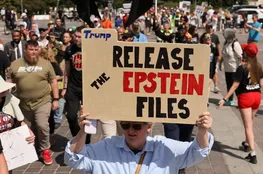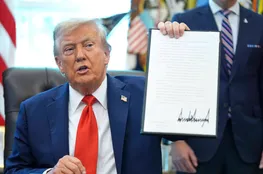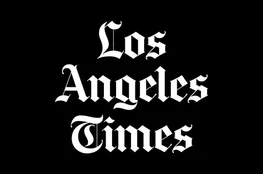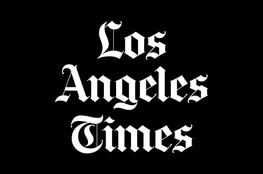America's history is punctuated by defining struggles against despotism—from Independence and the Civil War to the World Wars and the Cold War. For nearly 250 years, these victories forged a trajectory toward justice. Yet, the sense of security these triumphs provided also fostered a dangerous complacency that despotism was forever defeated. However, tyranny never truly vanished; instead, it lay dormant, preying on societal fears and grievances, ready to challenge America and the global democracies anew.
Our guard has slipped, and the resurgence of despotism is partly due to societal apathy, the illusion that individual voices lack impact, and a false assurance that democracy has permanently overcome adversities. We now face a pivotal moment that could either dismantle America's democratic experiment or uphold the sacrifices made by countless Americans to ensure freedom persists. Today's electoral stakes are unprecedented. The outcome will set the security framework for the U.S. and the world for years to come.
Former President Donald Trump and Vice President Kamala Harris present starkly opposing visions for America's future. Our adversaries grow increasingly audacious, working together to undermine democratic governance that safeguards individual liberties. Vladimir Putin convenes with other dictators and authoritarian regimes to strategize against the U.S. and its allies. The choice for the next president of America is crucial. One path offers building upon current alliances like AUKUS, forming stronger partnerships, and meeting threats resolutely.
The other path risks turning NATO into a mere protection racket, inviting escalation by appeasing adversaries. The decision between a collaborative international presence versus isolationist policies marks a choice between global security or increased danger. As we observe the Russo-Ukraine conflict, the stakes of potential conflict expansion become increasingly clear. One candidate's policies might sow chaos, enabling Russia to mount an offensive on Europe, provoking conflicts globally—inviting aggression by Iran or emboldening China against Taiwan.
Domestically, the threats to America's security are no less severe. Depending on the electoral outcome, we risk losing the very ethos of unity and progress fostered over centuries. We stand at a crossroads where our actions will define whether America's character remains principled or devolves into cruelty. Unity brings strength, while division weakens us beyond repair. While one candidate seeks to represent all Americans and fortify national interests, his opponent's divisive rhetoric threatens to fracture the societal fabric, casting immigrants as threats and disrespecting military service.
Furthermore, the policy divide is apparent. One candidate is dedicated to bridging ideological gaps, offering opportunities for the working and middle classes, while the other leans towards tax breaks for the wealthy and relying on outdated strategies. Investing in tangible futures stands against a backdrop of rolling back critical protections. Recalling the ominous 'America First' rally sentiments, there's a dire need to ensure history's darker chapters remain lessons rather than lived realities. Challenges to individual liberties, reproductive rights, and democratic integrity are profound threats to national security.
In Congress, I once declared that right matters. Should Donald Trump rise again, America might face a world where justice and fairness are endangered. Yet, I hold faith that we will surmount these threats and overcome the looming menace of despotism once more. With President Harris, I am confident that America's brightest days await—where principles prevail and justice endures.
Alexander S. Vindman, a retired U.S. Army lieutenant colonel, was pivotal in former President Donald Trump's first impeachment. Vindman, a recognized expert in international affairs and national security, shares insights at avindman.com.
























